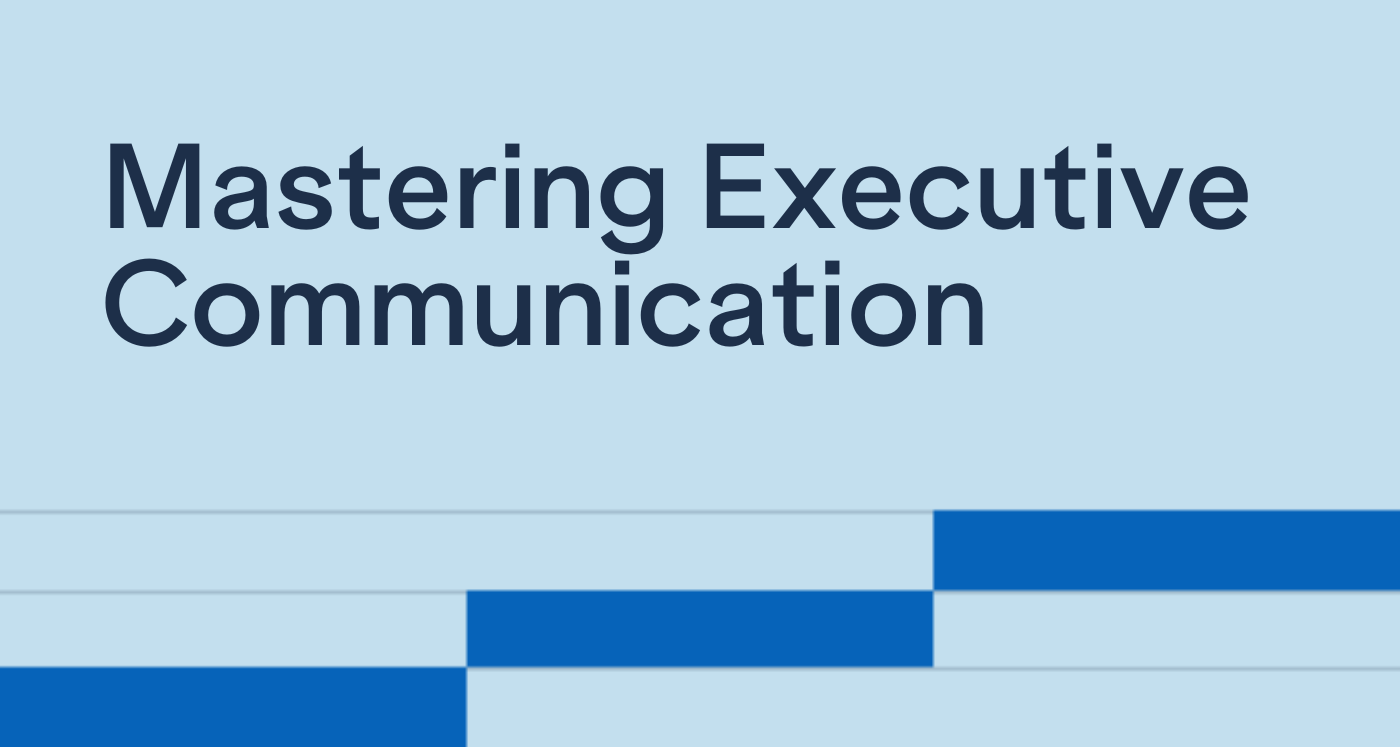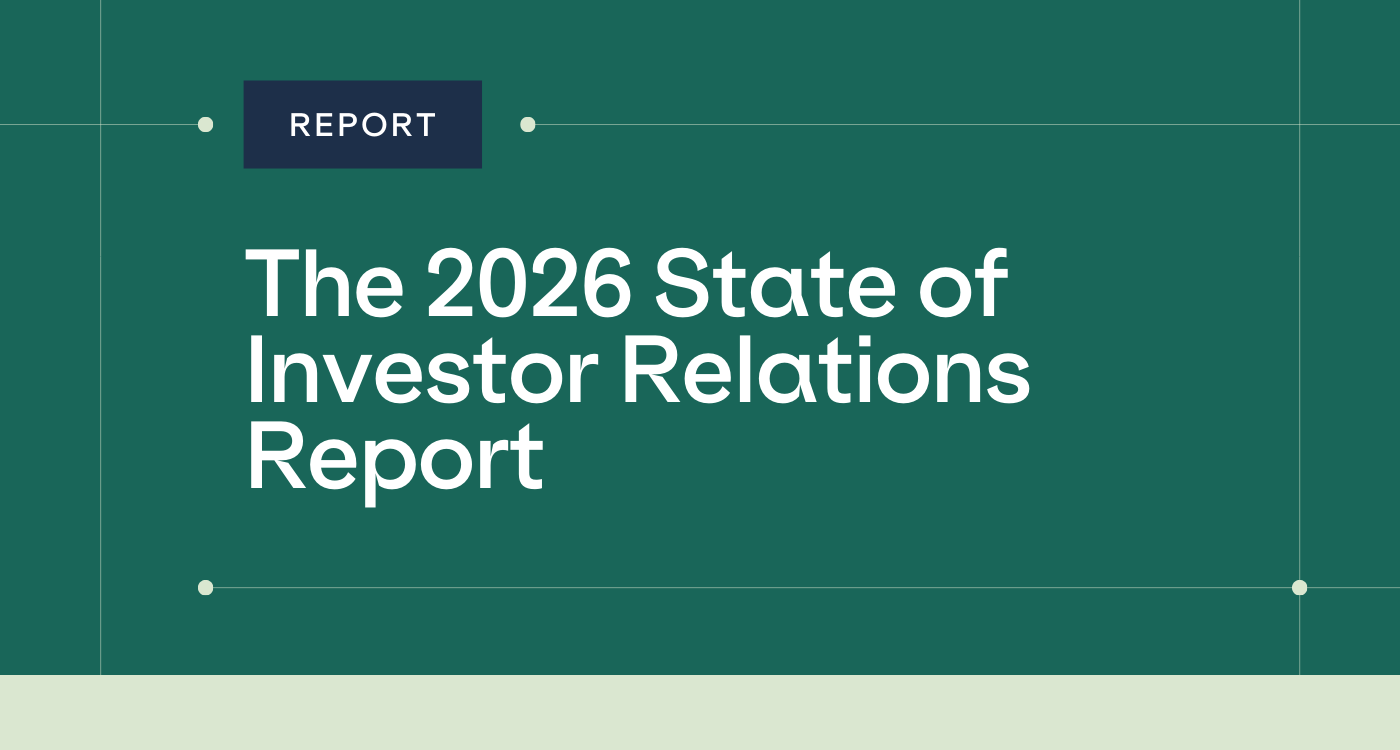
Activism readiness: Insights from IRO Kiley Rawlins
What's your plan for shareholder activism? Learn the tried and true ways Kiley Rawlins has navigated activism in her IR career.

It goes without saying that recent years have been relatively volatile. The CBOE Volatility Index (better known as the “VIX”), representing fear and trepidation in the market, is up approximately 20% YTD as of the end of Q3 2024. Interest rates, consumer spending habits, unemployment, and other economic factors influence investor confidence in the market.
These factors have led to rapid and pronounced drops in the share prices of several companies of varying market capitalizations who may be directly (or indirectly) affected by the headwinds presently facing the market. While the direct financial impact of a share price decline may be obvious to many, this article explores in further detail the many other (less obvious) ways in which your share price can affect your company and stakeholders within it.
Download The Ultimate Guide to Investor Relations
Rightly or wrongly, observers and participants in the capital markets tend to associate a company’s share price performance as a proxy for the quality of the products and/or services it provides. Rapid declines in share price may lead to the perception that there has been a material deterioration in the quality of said products/services being offered, which can create additional challenges for companies in areas such as sales, marketing, and product management. It can also indirectly affect a company’s ability to compete effectively.
With a substantial drop in share price naturally comes frustrated investors trying to better understand the reasons for the decline. A significant increase in inbound questions to IR & the C-suite can distract management and take away their time dedicated to running the business - this becomes particularly more acute if the inquiries are coming from your largest shareholders. Heightened levels of distraction amongst the upper-levels of management can adversely impact an organization’s operational efficiency, productivity, and strategic decision-making abilities. This is why it’s critical for IR teams to use a CRM that will help them reduce friction and save time when communicating with investors.
.avif)
One of the key advantages of being a public company is being able to quickly and efficiently issue equity as an alternative to other forms of financing (ie. debt). Issuing equity can be a beneficial and value-enhancing decision when shares are trading at levels above their intrinsic value and the proceeds are used to fund strategic initiatives with attractive IRRs. Conversely, issuing equity at a share price that is believed by investors to be below intrinsic value can be a value-destroying decision and oftentimes further exacerbates the impact of dilution.
With that in mind, a suppressed share price makes it more challenging for management to execute on strategic growth initiatives such as M&A. This is because transactions with a stock-component may become less attractive for potential targets and more expensive (ie. more dilutive) for the acquirer, while the multiple contraction associated with a decline in share price is likely to limit the universe of potential acquisition targets. Further, companies who have signaled to the market that M&A is a key part of their strategy could suffer exponential share price declines as they’re unable to execute and create value without a strong currency.
On the other hand, strong share price performance can act as a growth accelerant and in certain cases provide the backstop necessary for a company to carry on as a going concern. Take Tesla for example. Prior to the pandemic there were legitimate concerns about the company’s ability to sustain itself given the elevated levels of cash burn and (at the time) uncertain future demand outlook. Strong shareholder support during this time provided Tesla with an opportunity to access the funding it needed to not only stave off possible going concern risks, but also to accelerate growth while funding innovative product enhancements that further distanced the company from its competitors.
A company’s stock price can have a significant impact on employee morale. Employees often have ownership stakes of varying sizes within the company they work for, which better aligns their personal interests with those of their employer. As such, large swings in share prices have important implications as it relates to the productivity, turnover, and overall happiness of employees - particularly if the share price movements are associated with a fundamental change within the business.
Share price performance can have an important influence on margins and cash flow generation at an organization. For example, a fast-growing company with a rising share price is more likely to be able to entice prospective employees and motivate current ones with an equity compensation component, while a business with a declining share price may have to prioritize the cash component of compensation to further incentivize employees. This has important implications for key metrics such as adj. EBITDA and free cash flow, where stock-based compensation is commonly added-back by analysts and investors given that it is a non-cash expense. All else equal, a declining share price has a greater likelihood of placing pressure on margins and cash flows.
Belief in the future growth potential of a company is often a key consideration for employees when deciding to join or stay at the organization - regardless of career stage. Accordingly, recent share price performance is often perceived (once again, rightly or wrongly) as being a good indicator for the future prospects of a business, and thus plays an important role in both recruiting and retaining talented individuals. Given the present state of the labor market both in North America and around the world, attraction and retention of talent is a top objective for most companies. Which means that strong/weak share price performance is increasingly becoming a competitive advantage/disadvantage.
All else being equal (ie. beta, cost of debt, risk-free rate, future cash flow growth etc.) an increase/decrease in your share price implies a lower/higher cost of capital being priced in by the market. As seen in our recently published e-book, How Irwin Can Help You Lower Your Cost of Capital, a lower cost of capital tends to coincide with companies that have lower risk profiles, which makes them more likely to screen as attractive to a broader group of investors as the hurdle for shareholder value creation is lower. Your cost of capital also influences capital allocation decisions by management, therefore significant changes in your share price can materially impact your capital allocation flexibility and strategic decision-making ability.
Learn more about managing your share price in volatile markets.
Dealing with a volatile and declining share price can be challenging and stressful, particularly when there has been no fundamental change at your business (or even worse, when fundamentals have actually improved). At Irwin, our software, data and services are designed to help you navigate through challenging times like these, while enabling you to prioritize your time building relationships with the right investors who are willing to support you (and your share price) long-term.
Download our guide to learn how Irwin is lowering the cost of capital for public companies.

What's your plan for shareholder activism? Learn the tried and true ways Kiley Rawlins has navigated activism in her IR career.

Effective investor relations extends far beyond crafting compelling messages. Learn how the experts deliver their story strategically.

Across geographies and market caps, one theme is consistent: IR is entering a period of recalibration. Learn what's changing in 2026.